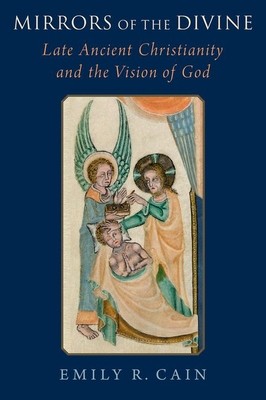
- We will send in 10–14 business days.
- Author: Cain
- Publisher: Oxford University Press, USA
- ISBN-10: 0197663370
- ISBN-13: 9780197663370
- Format: 16.4 x 23.6 x 2.1 cm, hardcover
- Language: English
- SAVE -10% with code: EXTRA
Reviews
Description
Mirrors of the Divine brings into focus how four influential authors of the late ancient world--Tertullian of Carthage, Clement of Alexandria, Gregory of Nyssa, and Augustine of Hippo--employ language of vision and of mirrors in their discursive struggles to construct Christian agency, identity, and epistemology. Early Christian authors described the vision of God through the Pauline verse 1 Corinthians 13:12: "For now we see in a mirror, dimly, but then we will see face to face." Yet each author interpreted this verse differently, based on a diverse set of assumptions about how they understood seeing and mirrors to function: does vision occur by something leaving or entering the eye? Is one impacted by seeing or by being seen? Do mirrors offer trustworthy knowledge? Spanning the second through fourth centuries CE in both Eastern and Western Christianity, Mirrors of the Divine analyzes these four authors' theological writings on vision and knowledge of God to explore how contradictory theories of sight shaped their cosmologies, theologies, subjectivities, genders, and discursive worlds. As Emily R. Cain demonstrates, how the authors portray eyes reveals how they envisioned one's relationship to the world, while how they portray mirrors reveals how they imagined the unknown. Both have dramatic impacts on how one interprets what it means to see God through a mirror dimly. She shows that arguments about the phenomenon of visual perception are deeply intertwined with broader debates about identity, agency, and epistemology, and uncovers some of the most self-conscious ways that late ancient Christians thought of themselves, their worlds, and their God.EXTRA 10 % discount with code: EXTRA
The promotion ends in 20d.07:55:27
The discount code is valid when purchasing from 10 €. Discounts do not stack.
- Author: Cain
- Publisher: Oxford University Press, USA
- ISBN-10: 0197663370
- ISBN-13: 9780197663370
- Format: 16.4 x 23.6 x 2.1 cm, hardcover
- Language: English English


Reviews